South Korea Calls Iran 'Biggest Threat, Enemy' Of UAE
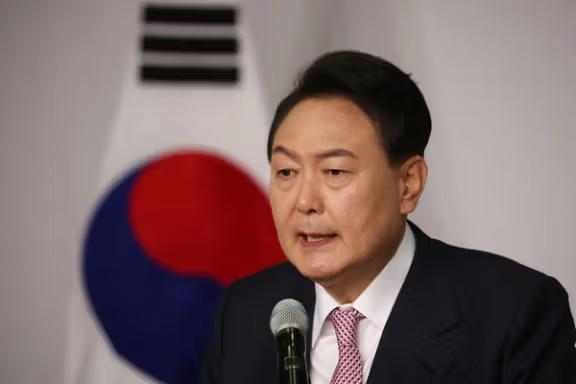
The President of South Korea says the enemy of the United Arab Emirates and its biggest threat is Iran while South’s enemy is North Korea.

The President of South Korea says the enemy of the United Arab Emirates and its biggest threat is Iran while South’s enemy is North Korea.
According to the Arabic service of Yonhap News Agency, Yoon Suk Yeol said during his visit to the UAE Sunday that "the security of the UAE, which is our sister nation, is our security".
He added that the two countries are in a very similar situation as both face dangerous enemies.
The president of South Korea has travelled to the Arab country on a four-day official visit upon the invitation of Mohammed bin Zayed Al Nahyan, the President of the United Arab Emirates.
It seems that this is the first time South Korea calls the Islamic Republic "the enemy and the biggest threat" to the security of the UAE.
Seoul's relations with Tehran, except for the issue of seven billion dollars frozen in Korean banks due to US sanctions, were usually considered to be normal and far from tension.
Yoon Suk Yeol is not the first leader of a Asian country who has openly adopted positions that conflict with Iran's national interests and possibly a kind of turn in his country's policy.
Chinese President Xi Jinping also visited Saudi Arabia in December and met members of the Gulf Cooperation Council. He signed a joint statement in which the issue of three Iranian islands in the Persian Gulf was mentioned as a claim pursued by the United Arab Emirates.
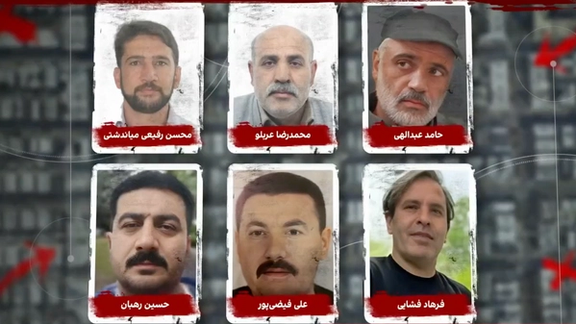
Iran International has obtained information about perpetrators of a botched operation by the Revolutionary Guard to assassinate an Israeli citizen in Georgia in November.
According to the new information, five individuals were the main members of a hit squad from the Quds Force Unit 400 of the IRGC, who sought to kill Itsik Moshe, a prominent businessman and the chairman of Israel Georgia Chamber of Business. Hacker group Backdoor (3ackd0or) provided Iran International with documents about their identities, place of residence, etc.
The five agents were Hossein Rohban, Mohammad-Reza Arablou, Mohsen Rafiei Miandashti, Farhad Fashaee and Ali Feizipour.
Moshe is also the chairman of Israeli House, the organization concentrated on public diplomacy for Israel in Eastern Europe, tasked with communicating directly with citizens of other countries to inform and influence them so that they support the Israeli government's strategic objectives.
Unit 400 of the Quds Force -- a division primarily responsible for extraterritorial military and clandestine operations – planned assassination of some Israeli officials in several countries, and a Pakistani team affiliated with al-Qaeda was tasked with gathering information in the operation in the Georgian capital Tbilisi.
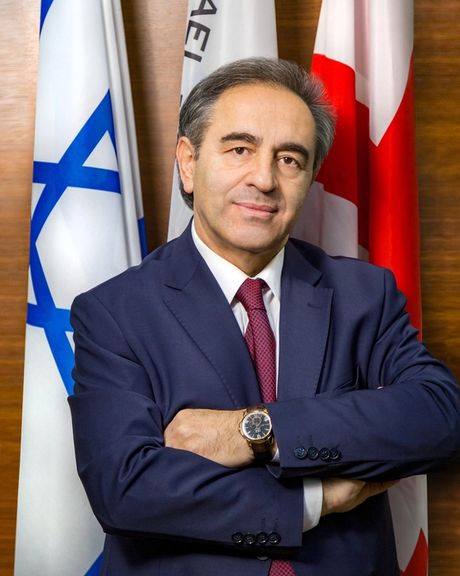
The operation was revealed when Georgian security forces noticed the suspicious activity of a member of the Pakistani team. The State Security Service of Georgia released a statement in mid-November saying that two Iranian-Georgian citizens -- Miandashti and Fashaee -- who were responsible for providing weapons for the assassination were arrested. They were cooperating with an arms smuggler in Turkey.
Georgia also said the one who ordered the murder – Rohban – was outside Georgia. According to data leaked by the 3ackd0or, he is residing in the northwestern city of Orumiyeh (Urmia). Arablou was also responsible for coordinating the team and is reportedly living in the city of Zanjan.
The leader of the team – Rohban -- was under the direct command of Hamed Abdollahi, the head of the Unit 400 who is wanted internationally following the disclosure of an assassination plot targeting Adel al-Jubeir, the former ambassador of Saudi Arabia to the United States from 2007 to 2015. Abdollahi, who used to serve as the IRGC commander in Zahedan and also served as a deputy to slain Quds commander Qassem Soleimani, is also sanctioned by the US following the failed assassination.
Most of the members of the Quds Force Unit 400 of the IRGC were former comrades of Soleimani in the 41st Tharallah Division in Kerman, who later gathered under the title of Haj Qassem's guys. Soleimani – who was killed by a US air strike on January 3, 2020 -- was in charge of supporting and organizing militant proxy forces, including the Lebanese Hezbollah and Iraqi Shiite militia groups that were repeatedly attacking US forces in Iraq and elsewhere.
The news from Georgia came months after Israeli and Turkish intelligence agencies worked together to stop an Iranian plot to assassinate Israeli tourists in Istanbul. Jerusalem warned Israelis not to visit Turkey in June, and soon after, Turkey arrested eight members of an Iranian cell in hotel rooms in a popular tourist district, with weapons and ammunition.
In October 2021, Cyprus foiled an Iranian plotto attack Israelis, including billionaire Teddy Sagi, which Tehran denied. Cypriot authorities arrested a Russian-Azeri man who had a loaded pistol with a silencer in his rental car.
In recent years, there are numerous reports about assassinations of Iranian military commanders and sabotage attacks in Iranian industrial complexes, attributed to Israel, as well as numerous failed attempts to assassinate or kidnap Israeli officials in many countries. Iranian officials claim that they have dealt serious blows to Israel, but they cannot announce them due to confidentiality.
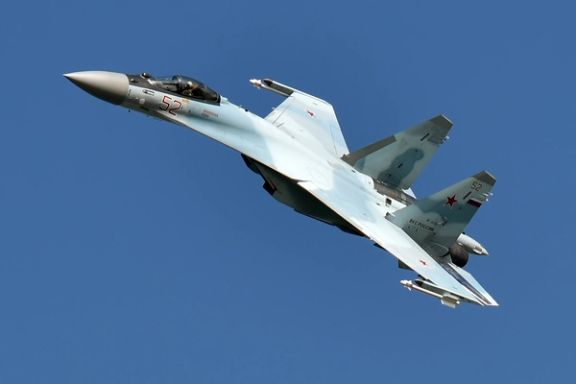
An Iranian lawmaker says the country will receive Russian Su-35 fighter jets within three months under an agreement with Moscow.
Shahriar Heidari (Haydari), a member of the parliament's National Security Committee, told Tasnim News Agency on Sunday that the fighter jets are going to arrive in the coming Iranian new year that begins on March 21.
However, Heidari did not specify the number of aircraft ordered.
“We have also ordered a number of other military equipment from Russia, including air defense systems, missile systems and helicopters, most of which will also arrive soon,” underlined the Iranian parliamentarian.
Iran has supplied hundreds of Kamikaze drones to Russia since last September that have been extensively used against Ukraine’s civilian infrastructure. Western powers have expressed concern over the growing military cooperation between Moscow and Tehran.
Media reports say the Islamic Republic will also get 24 twin-engine fourth-generation fighter jets that will be used primarily for "air superiority missions."
Back in September, Air Force Commander Hamid Vahedi said "the purchase of the Sukhoi 35 from Russia is being considered" by the Iranian air force.
The news of Iran's purchase of Sukhoi 35 fighter jets was first published last summer by the Institute for the Study of War, based in Washington, which covers the news of Russia's war against Ukraine.
Iran has not acquired any new combat aircraft in recent years, except some Russian MiG-29 Fulcrum fighters it purchased in the 1990s.
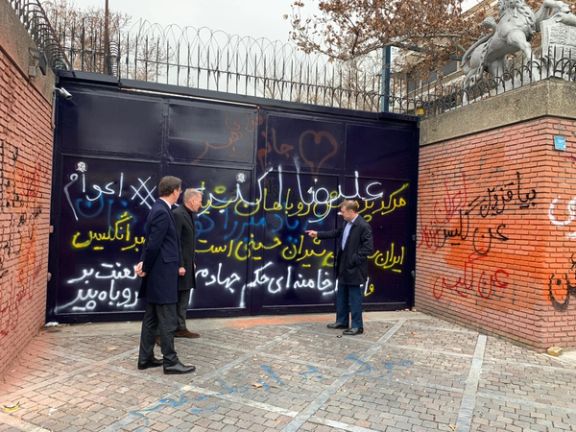
Three European ambassadors in Tehran appeared together in solidarity outside their embassies where Iranian regime elements have written anti-West slogans.
Simon Shercliff, the British ambassador to Tehran, published pictures, which he took together with his French and German colleagues Nicolas Roche and Hans-Udo Muzel, on Twitter Sunday.
The three European powers and Iran have been at loggerheads in recent months due to several issues, including stalled nuclear talks, deadly suppression of protests in Iran, and the execution of four protesters, as well as Iran’s supply of kamikaze drones to Russia.
The latest was the execution of Alireza Akbari, a former Iranian defense ministry official and an Iranian-British citizen, who was accused of spying for MI6.
Iranian officials have been attacking Europe for criticizing Tehran’s human rights violations and accusing them of interference in their internal affairs.
In response, Britain temporarily recalled its ambassador for consultation and sanctioned Iran's Attorney General Mohammad Javad Montazeri. France and Germany, along with Britain, strongly condemned the move by the Iranian regime.
In mid-December, a group of Iranians in the capital Tehran voluntarily helped paint the walls of the British embassy vandalized with anti-UK slogans.
The slogans had been seemingly sprayed by some pro-regime elements to protest UK’s support for anti-government protesters in Iran.
Shercliff in a tweet thanked Iranians and international friends from Germany, South Korea, France, Italy, Brazil, and some other countries who sympathized with the UK.
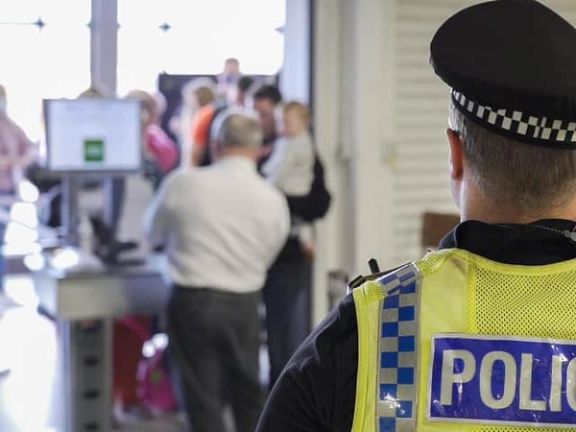
An unnamed British businessman has been arrested on suspicion of terrorism over an alleged attempt to import a deadly uranium package into the UK.
The arrest comes after a very small amount of radioactive material was discovered by police on a package that arrived in Britain on December 29.
The package, which was reported to have originated in Pakistan, arrived at Heathrow airport on a flight from Oman. It was thought to have been sent to British-based Iranians, say the British media.
Although there is no public evidence of Iran being involved, some believe that whoever sent it might be testing weak points in British safeguards.
The 60-year-old suspect was apprehended in Cheshire in northwest England on Saturday and then released on bail, the Metropolitan Police said Sunday.
Met Counter Terrorism Commander Richard Smith stressed that there appears to be no direct threat to the public.
“The discovery of what was a very small amount of uranium within a package at Heathrow Airport is clearly of concern, but it shows the effectiveness of the procedures and checks in place with our partners to detect this type of material,” Smith said, adding “there is no linked direct threat to the public.”
Highly enriched uranium can be used to make a nuclear bomb, but the Met statement did not specify the uranium’s intended use.
Some experts told the media the uranium found is likely too inefficient to be used for bomb-making.
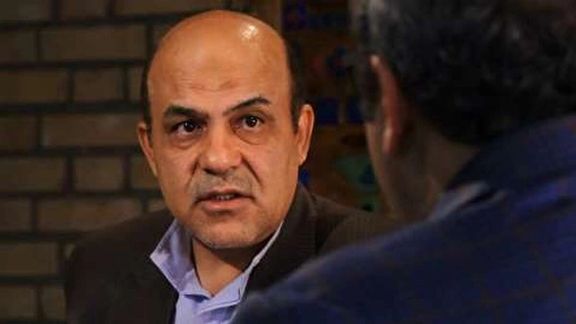
After Iran executed British-Iranian national Alireza Akbari reports say London is reconsidering its support for reviving the 2015 Iran nuclear deal.
Tehran announced on Saturday that it executed the former deputy defense minister, Alireza Akbari, after sentencing him to death on charges of spying for Britain’s MI6.
Before his death, an audio file was leaked where he claimed to have been tortured for 3,500 hours. Akbari said in the tape the regime had forced him to confess to crimes he had not committed.
Following the execution, The Sunday Telegraph said the UK is reconsidering its support for the 2015 nuclear deal known as the JCPOA, dealing another blow to the chances of reviving the accord. Britain has been a key player in the talks on restoring the Obama-era deal, abandoned by former US President Donald Trump.
The Sunday Telegraph cited senior – but unnamed -- British government sources as saying that the “landscape” has changed significantly since negotiations began in 2021, and as such Britain is now reviewing its options regarding its future involvement in renewing the deal.
“During the time we have been dealing with it, the landscape and proposition has completely changed – largely because of the behavior of the Iranian regime,” a government source said. The sources pointed out that the relationship with Tehran has been under severe strain in recent months due to its brutal repression of protests, ignited by the death in custody of Mahsa Amini. Meanwhile, Downing Street said “all options are under review” following the execution of Akbari.
Foreign Secretary James Cleverly has also announced a series of measures in response to the execution, including sanctioning the regime’s prosecutor general and summoning Iran’s charge d’affaires to convey Britain’s “disgust”. He said the sanctions show that the UK is serious about holding Iran to account for its “appalling human rights violations”.
The British ambassador to Iran has also been temporarily recalled to the UK for urgent talks about possible next steps. Cleverly is also set to travel to Washington DC on Monday for talks with US Secretary of State Antony Blinken where the two will discuss Iran.
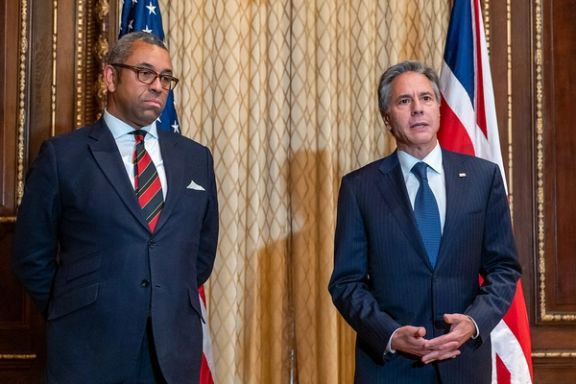
On Saturday, Rishi Sunak accused the regime of a “callous and cowardly act, carried out by a barbaric regime with no respect for the human rights of their own people”.
Ramin Forghani, Akbari’s nephew who fled to Luxembourg because of his opposition to the regime, has said that continuing the discussions with Iran would be “unthinkable”.
Britain is already drawing up plans to proscribe Iran’s Revolutionary Guard (IRGC) as a terrorist organization.
Britain has also received support from the United States, France and Germany, all signatories of the JCPOA, in its condemnation of the execution.
Since negotiations to revive the nuclear deal or JCPOA broke down in September, the Biden administration and its European allies have put the talks on the backburner and even President Joe Biden said in early November that “JCPOA is dead.”
Akbari’s execution is a major escalation in tensions between the West and the Islamic Republic, which were already sour over Tehran’s crackdown on nationwide antigovernment protests and its military support for Russia’s invasion of Ukraine.
Akbari had been deputy defense minister under the reformist President Mohammad Khatami, from 1997 to 2005. He was an advocate of the Iran nuclear deal known as the JCPOA that was eventually signed in 2015 with world powers.
He was also close to Ali Shamkhani, the secretary of the Supreme National Security Council of Iran. A source close to the Islamic Revolutionary Guard Corps has provided information to Iran International showing that the execution of Akbari is aimed at weakening Shamkhani’s position in the clerical regime. It seems that President Ebrahim Raisi, Intelligence Minister Esmail Khatib and Interior Minister Ahmed Vahidi are exerting pressure to remove Shamkhani from the post.